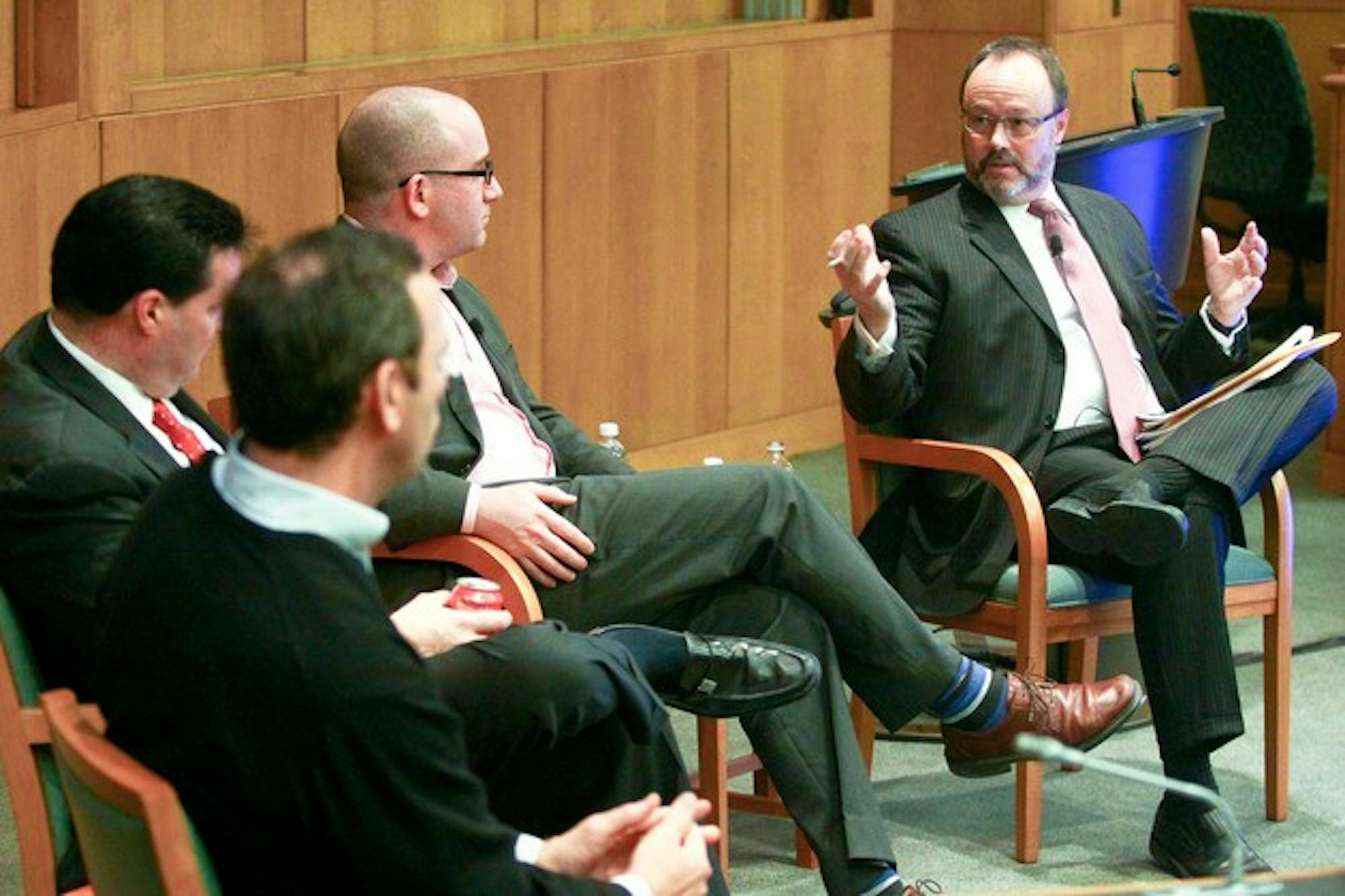Social media is revolutionizing the way corporations interact with both employees and consumers, according to panelists at the annual "Tech@Tuck" series hosted by the Tuck School of Business Thursday evening.
Companies often hesitate to become too involved in online dialogues related to corporate performance for fear of "inflaming" critics, according to Sam Howe, chief marketing officer at Time Warner Cable and one of the panelists at the lecture, "Social & the Enterprise."
"The only way to deal with [criticism] is to respond," Howe said. "You have to engage, you have to address and you have to acknowledge."
Companies should embrace the opportunity to improve their products and services by engaging with criticism published in the online world, according to panelist Gary Grates, president and global managing director of Edelman Change and Employee Management.
"You have to go into those sites and see what people are saying," he said. "Ninety-nine percent of the time, there are real issues that [consumers] are trying to talk about, but they felt that the internal channels were closed."
Responding to online attacks is valuable because "people feel that they are being respected," Grates said.
Time Warner's social media strategy employs various online engagement techniques, Howe said. A major part of the company's outreach focuses on addressing disgruntled customers in social media forums such as Twitter.
"We have a small group of employees who take note of everyone's writing in the blogosphere," he said.
The company also runs its own blog, through which it attempts to elicit comments from well-known bloggers with large readerships, according to Howe.
Although companies have often dismissed bloggers as "reporters who don't check facts," they should not overlook these individuals' growing influence, he said.
Panelist Ben Edwards, vice president of digital strategy and development at IBM, spoke about the permanence of online data as a growing problem for corporate employees. Employees must be educated regarding the ramifications of posting compromising information online, given how easily this information can be retrieved, he said.
Individuals should critically examine the way they present themselves online to ensure that their online activity is consistent with their workplace identities, Edwards said.
At Starwood Hotels & Resorts Worldwide, there is no policy prohibiting employees from posting information about work-related issues in social networking communities, according to the company's vice president of global web strategy David Godsman.
Although there is "natural overlap" between individuals' personal and professional lives, there needs to be a sense of "accountability" when employees reference their work life in social media platforms, he said.
Godsman pointed out employee Twitter posts related to workplace grievances as examples of problems that companies must address.
While employee internet activity can create problems, employees can also be a powerful source of wisdom for company executives in decision-making processes, Grates said. Starbucks is a company that has correctly engaged its employees by using social media, according to Grates.
"[Starbucks has] a high respect for their people and they've built the channels to allow for people to participate in those discussions," he said.
Social media has served as a powerful tool for implementing far-reaching changes in company practices, according to Godsman. Starwood has used its social media presence to evaluate its recent $6 billion revitalization campaign for Sheraton hotels, he said.
The company was able to gather customer feedback "in real time" and incorporate the most popular features of the reinvigorated hotels into its global marketing campaign, he said. The company operates over 1,000 Facebook pages for each of its hotel properties, according to Godsman.
The corporate world has a significant opportunity to capitalize on the unprecedented ability to receive detailed feedback from a multitude of customers, according to Howe.
"It's one thing to listen and it's one thing to get feedback but this is a contagion that can actually change business," Howe said.
John Gallant, the Chief Content Officer of IDG Enterprise, served as the moderator of the panel.




